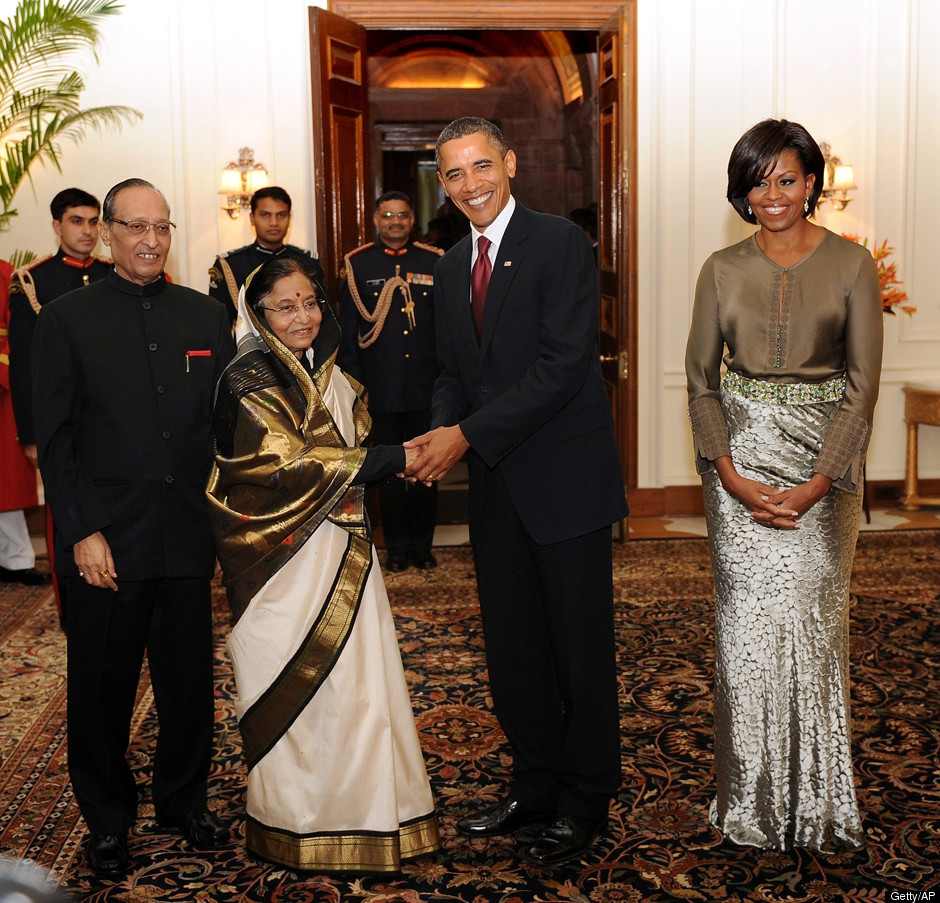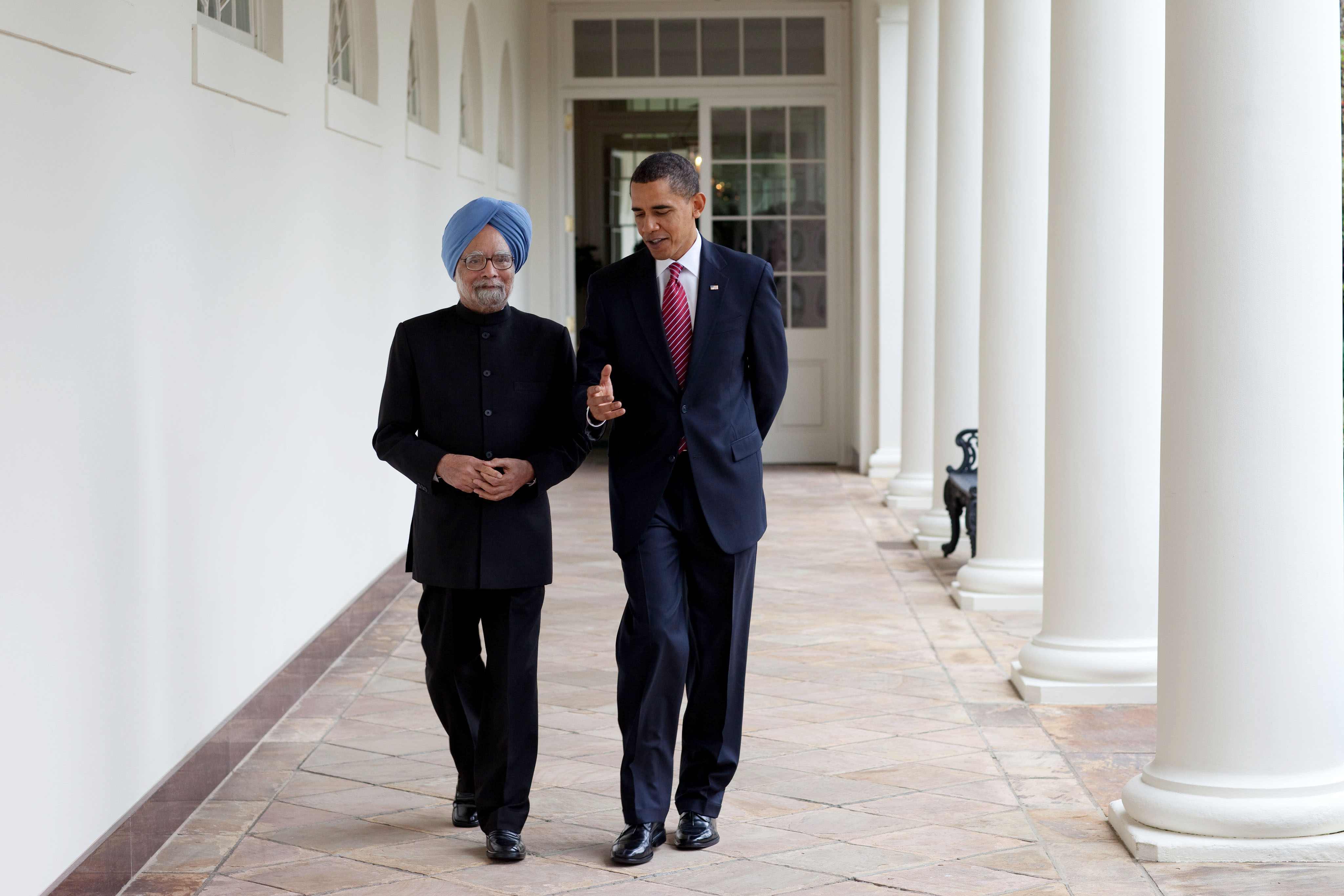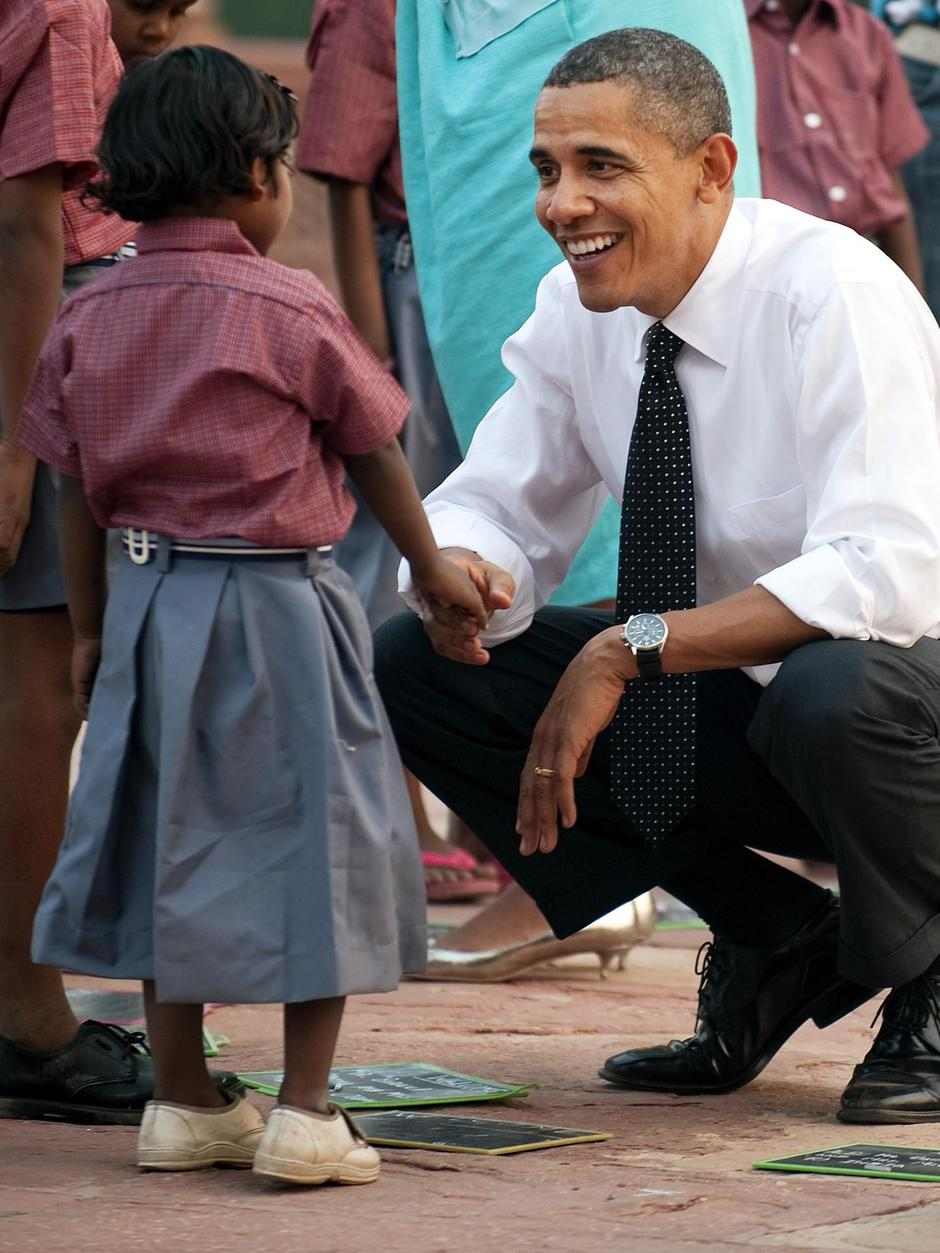Archives
obama’s visit to india
Obama’s visit to india
ATTEMPTING TO KILL TWO BIRDS WITH A SINGLE STONE
It was during the tenure of Bill Clinton that India began to enjoy a close association with the US. George Bush’s visit to India four years ago saw another  milestone reached in the relation between the two nations. And now, the recent visit of US President Barack Obama showed many new turns although it can hardly be termed historical. It has also seen a role reversal as Obama clearly indicated that he is eyeing the thriving Indian market. Ways for greater mutual trade have also opened.
milestone reached in the relation between the two nations. And now, the recent visit of US President Barack Obama showed many new turns although it can hardly be termed historical. It has also seen a role reversal as Obama clearly indicated that he is eyeing the thriving Indian market. Ways for greater mutual trade have also opened.
Obama visited India at a time when his Democratic Party suffered a great setback in mid term elections for the Senate. Unemployment rate in America has risen up to 10 percent. Growing dissent due to this unemployment led to a debacle in the polls for his party. It is no wonder then that, on the first day of his stay in India, Obama expressed undue eagerness in getting those twenty business deals finalized in Mumbai. Not only this, he gave his own countrymen a clear assurance that at least fifty thousand new jobs would be created in America because of these business deals.
Two years ago, when the Americans elected Obama as their first non-white President, a wave of hope had swept across the US as well as the entire globe particularly in the backdrop of the ongoing recession. His election was seen as an important milestone in world history. He began to be seen as a messiah of the black population. It is in itself a historical event that a non-white occupied the most powerful post on earth. It was but natural then to hope that the world would change, as Obama spoke of changing America and the world in his election speeches. He also assured the world that America would prepare the roadmap for this global change and disparity would become a thing of the past.
 It is no doubt that when Obama occupied the highest office in America, a lot of challenges were facing him. Two years have passed since then and his promises have so far remained promises. In order to learn what prompted Obama to schedule a hectic visit to India bypassing Pakistan, let us first see what developments have taken place in the US during these two years.
It is no doubt that when Obama occupied the highest office in America, a lot of challenges were facing him. Two years have passed since then and his promises have so far remained promises. In order to learn what prompted Obama to schedule a hectic visit to India bypassing Pakistan, let us first see what developments have taken place in the US during these two years.
Many American experts, including Robert Rick who held the labour portfolio in Clinton’s administration, declared the Obama regime an illusion. While analyzing the recession, it has been stated that a clear difference is seen between the words and the work of Obma. Immediately after getting elected to the President’s office, Obama was conferred with the prestigious Nobel Peace Prize, obviously for his potential to do something revolutionary in the world order. Even then, his popularity has been declining since then. The American economy is still in doldrums and it has yet to recover from recession. American consumers are helpless and unemployment is soaring.
Experts blame the American economic policies for all the mess. According to them, symptoms of a deteriorating economy had been visible two to three decades back but no timely measures were taken as the country was displaying snobbery of being superior to other economies. Work conditions were better and workers were highly paid there. This raised the cost of production, something that any businessman worth his while would have avoided. Therefore, when an expansion in information technologies took place, it prompted many of their top business leaders to outsource most of their work to countries like India and China where labour was comparatively cheaper.
This attitude of American business houses created innumerable jobs in India and other developing countries at the cost of employment in the US. Despite  all this, the American economy could absorb this shock only because women constituted a major part of the workforce there. Men, on the other hand, had to work overtime to increase their income. Women too, by the turn of the century, began to work up to 20 hours more in a month. But even this extra labour failed to sustain the family income. As a result, average American households began to sink deep into loans. Aggregation of this situation gave a severe jolt to the American economy. Now, it is really a catch-22 situation for the American economy. Even if all the Americans are engaged in productive work, they don’t have enough money to purchase all that is produced through this work.
all this, the American economy could absorb this shock only because women constituted a major part of the workforce there. Men, on the other hand, had to work overtime to increase their income. Women too, by the turn of the century, began to work up to 20 hours more in a month. But even this extra labour failed to sustain the family income. As a result, average American households began to sink deep into loans. Aggregation of this situation gave a severe jolt to the American economy. Now, it is really a catch-22 situation for the American economy. Even if all the Americans are engaged in productive work, they don’t have enough money to purchase all that is produced through this work.
As many other economies were closely related to the American economy, it is but natural for the entire world to experience the aftershocks of this recession. Nevertheless, India remained largely immune to these shocks due to its inherent economic features. This also indicates the growing strength of the Indian economy.
As it was earlier in 1928 when America had suffered a severe recession, the country’s money had come to be concentrated in the hands of a few. This super rich class spends only a meager part of its income in comparison to the middle class thereby giving the economy buoyancy. This in turn creates employment.
It is not binding for the super rich class to invest their money in their own country. They may, and do invest it in foreign countries. So the only way out of this recession was to distribute the money far and wide.
Following the 1928 recession, American economy witnessed great monetary reforms. But after the 2008 recession, no such remedial measures were taken to ensure equal distribution of money even though it is the first prerequisite to keep the economy running.
The recently concluded one was Obama’s first state visit to India. While starting from Washington, Obama promised his countrymen that he was going to find a vast market in India and he kept his promise as the first day of his visit saw a number of business deals entered into between the business magnates of the two countries. According to an estimate by the CII, these deals would create about seven lakh new jobs in America in the years to come. Now this will definitely help that country to come out of the recession. In return, Indian companies will get business.
On the political front, India was expecting a clear cut backing from America for its claim to a permanent seat in the UN Security Council. On Indian soil, Obama did announce support for India’s candidature for the same. But once he returned to America, his tone has changed. Now he is adding many ‘ifs’ and ‘buts’ to his assurance.
On the problem of terrorism, he avoided referring to Pakistan’s involvement in terrorist activities. Addressing the joint Parliamentary session, he invoked Pakistan to book the culprits responsible for the Mumbai attacks. His invocation however was met with a lukewarm response from across the border.
Expectations are running very high in both the countries but India must understand Obama’s compulsions. An American President automatically becomes a moral leader of the world but Obama is losing this status fast. Shrewd senators run that country. Obama has to carry the political legacy of his predecessor Presidents. Before becoming the President, he had won the hearts of not only his fellow countrymen but also of other countries by his astute and impressive oratory. But this oratory seems to be losing its edge now.

